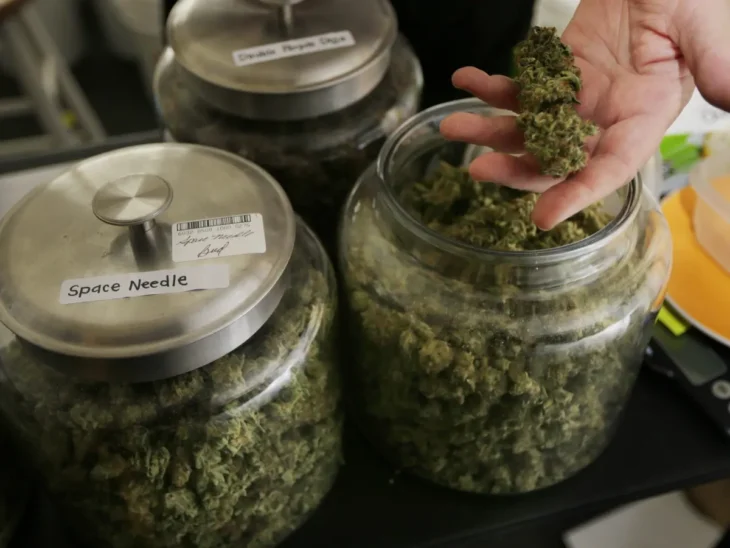There are some to whom cannabis and its by-products are an alien concept, a stigma that might have not left them. What they don’t realize is that this plant is creating shockwaves in the health and wellness industry. Then there are others who have been using the same for a series of medicinal benefits. And it isn’t just anecdotal pieces of evidence that support their claims, there have been extensive studies and research to support the medical use of cannabis.
Now, there isn’t just one single type of extract or derivative that marijuana has, there is an array of cannabinoids that have been discovered. Each cannabinoid has its own properties that affect its user differently. With that in mind, there are all sorts of products in the industry that have expanded the reach of cannabis to many people.
Whether you are a veteran with years on end of experience with cannabis, or someone relatively new in the field, there will always be something new in the market that will get you intrigued. Not just the market, but people and medical professionals dedicated to the field of cannabis have been on the go regarding the plant. Medical cannabis is available in more than 30 states and the number is on the rise. Apart from in-clinic visits for a recommendation, telemedicine platforms like onlinemedicard.com are coming forward to give out medical cards and recommendations from state-licensed doctors.
You might have been living under a rock if you haven’t heard of Cannabidiol (CBD), the second most popular cannabinoid derived from hemp. This compound has been gaining immeasurable popularity over the last few decades. The reason behind its popularity is its effective use against pain, anxiety, and all sorts of mental distress. It has been a while since people have been vouching for the plant’s legality, trying to mold it one way or another.
Now let us talk about the new comings in the industry of marijuana. There are many things that one could talk about, but to make things easier for you, we have narrowed down the list to one. Today, we talk about the synthetic but not so synthetic cannabinoid Hexahydrocannabinoid(HHC).
Contents
Should we call HHC natural or synthetic?

Source: cannabis.wiki
The answer is a little more perplexing than a simple yes or no. As per a study in 2007, Hokuriku University shared a rather mind-blowing research done on the compound. They found that CBD, a natural cannabinoid can be transformed to make HHC and THC.
We can divide cannabinoids into two broad categories of cannabinoids,
- Which are present naturally and are made available through various methods.
- Ones that come into being from a laboratory trying to replicate the effects of natural cannabinoids.
Be it natural or the ones made in laboratories, both bind to the endocannabinoid system in our bodies, when consumed. What’s even more surprising is that the lab cannabinoids affect the ECS in almost similar ways to how the natural ones do. Some relieve pain, others anxiety, while a few reduce inflammation.
The ingredients for lab-made cannabinoids are made, prepared, and finalized in a laboratory. On the contrary, semi-synthetic cannabinoids are extracted from natural cannabinoids in labs. Semi-synthetic cannabinoids are generally synthesized in labs to get CBD and THC extracted, among others. While the two major compounds are generally left unchanged, the others are either enhanced or dampened accordingly.
This is exactly what happens with the compound we are talking about, a similar compound to THC that is produced in the lab after synthesizing THC. This demonstrates the similarities between the aforementioned and THC, the only change being in its molecular structure. A couple of carbon bonds here and there make the difference in the lab.
What are the effects of HHC?

Source: nextavenue.org
There is little doubt that the two compounds, THC and HHC are similar, but are their effects a mirror image of one another? Not exactly, but in ways the two are very similar too. The thing with a semi-synthetic compound is that it walks the line perfectly between being natural and synthetic. Also, that its properties and resulting effects are frighteningly similar to its subsequent parent.
Now, due to the slight changes in their chemistry, HHC is stable when compared to THC. This happens due to the dampening process we had mentioned earlier; that it gives a more subdued outcome to its users than THC does.
Ultimately it boils down to one thing, HHC is very closely similar to THC, like Delta-8 THC. The effects one feels are –
- A mild, but significant high.
- Changes in hearing, seeing, and sensing pain.
- Increased body temperature and heart rate.
How do they make HHC?
If it wasn’t evident till now, we’ll make it clear now, HHC is a lab-created, semi-synthetic cannabinoid. It is derived when molecules of low -THC cannabis are isolated to give a specific few cannabinoids the potential to compete with the rest of the family.
When a specific amount of hydrogen is administered to a cannabis compound, it changes its chemistry and produces the semi-synthetic cannabinoid. A metal catalyst is then added to initiate a reaction with the compound. This catalyst accelerates the overall reaction without causing any harm to the product. The overall chemical reaction produces HHC, which would not occur in nature otherwise.
CBD, after much research, can also be transformed into a variety of HHC isomers, and other similar derivatives. The conversion of CBD to the semi-synthetic cannabinoid does not happen naturally and even if it does, it does so in a little amount. To get massive quantities of this semi-synthetic cannabinoid, you will need to heat out CBD in a highly acidic environment. That is why producing it at home is not the best option.
Benefits of HHC
Even though its study is in its infancy, there have been a few benefits of hexahydrocannabinoid that have jumped out. Here are a few –
It has shown Pain relieving Effects

Source: healthline.com
The aforementioned study from Hokuriku University provides an intriguing look into how HHC can relieve pain. The two types of the semi-synthetic cannabinoid were tested on rodents by the research team at Hokuriku University. They noted that the cannabinoid made for a great sleeping aid, increasing sleeping times by a large margin. The research article also stated that it was a great way to reduce pain.
To put it in simple words, HHC has almost the same effects as Delta-9 THC but lacks the same intensity.
It can be used to stop cancer growth
In 2011, a study on two hexahydrocannabinol derivatives. The results gave good indications that both derivatives may have the capabilities to curb cancer cell growth. This gave a clear enough indication that HHC has a great potential to stop tumor growth, though more research is still needed.

